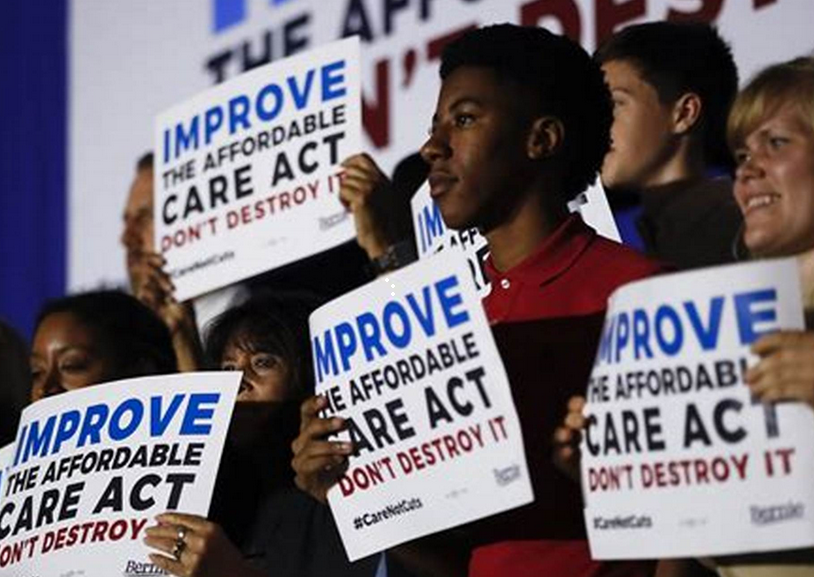WILLIAM BRANGHAM: For most Americans, the enrollment period to sign up for insurance plans under the Affordable Care Act ends tomorrow. John Yang has a look at the numbers so far.
JOHN YANG: William, the latest government figures show that, as of last Saturday, more than 4.1 million people had signed up for ACA coverage. That's down nearly 12 percent from last year, and the number of new enrollments is down almost 20 percent, this despite stable premiums and more plans available. Now, millions more are expected to sign up or be reenrolled by tomorrow's deadline. To discuss what's going on, we're joined by Julie Rovner, chief Washington correspondent for Kaiser Health News. Julie, thanks and welcome. Why is enrollment down from last year?
JULIE ROVNER, Kaiser Health News: Well, there are a lot of reasons. A big one, of course, is that Congress last year repealed what's called the mandate penalty, so if you don't have health insurance, you will no longer have to pay a tax penalty for not having it, although a lot of people actually don't even know that. The economy is better. More people have jobs. They don't need their own health insurance. There are some smaller things. In Virginia, they're expanding Medicaid, so you have got tens of thousands, more than 100,000 people who were getting ACA coverage who will now be able to get Medicaid. And the Trump administration allowed these short-term plans, these alternative kinds of plans, that might be cheaper if you're healthy. And there are some number of people who are probably going to sign up for those plans instead, so there are a lot of things that are contributing to this.
JOHN YANG: So, even though enrollment is down, that doesn't mean necessarily that people, that coverage is down?
JULIE ROVNER: We don't know yet. We won't find that out for several more months. But, yes, enrollment is down, but some people could be getting alternate coverage.
JOHN YANG: What does this tell us about the health of the ACA?

JULIE ROVNER: Well, actually, that it's really more resilient than a lot of people thought. It was predicted that, when Congress got rid of the penalty for not having insurance, that the bottom would fall out of the market. And while enrollment is down, the bottom is not really falling out of the market, which is coming as a bit of a surprise to people, that they, it seems to be more the subsidies that can help people buy insurance that are keeping people there, rather than the prospect of a tax penalty if they don't buy it.
JOHN YANG: The bottom not falling out, does that also mean that the market is, the marketplace is stabilizing?
JULIE ROVNER: The marketplace is stabilizing. Insurers are starting to make money. And, in fact, this year, most of them didn't raise premiums anymore, in fact. And some are coming, more insurers are coming into the market. So there's more choices at sort of less rapidly rising prices. So, yes, the market is in better shape certainly than it was last year.
JOHN YANG: And the deadline tomorrow is for the federal marketplace.
JULIE ROVNER: That's right, for the states that use the federal marketplace. It is most of the states. But there's some very large states, including California and New York and Massachusetts, where the deadline is in January. So, they're, so, in most states, tomorrow is a deadline, but in about a half-a-dozen states and Washington, D.C., it is later. So you will still have a chance to sign up.
JOHN YANG: And, also, we won't know final numbers for a while.
JULIE ROVNER: No, we will not know final numbers for a while. Some millions of people will be reenrolled at some point. If they don't come to the marketplace and choose a new plan, they will just be renewed into their old plan.
JOHN YANG: So, people who want to enroll in the federal marketplace before tomorrow's deadline, they go to?
JULIE ROVNER: Healthcare.gov. At this point, it's pretty crowded. They may put you in what they call a waiting room and they will call you back. But if you get in that line, then you will be able to enroll even after the deadline.
JOHN YANG: Julie Rovner of Kaiser Health News, thank you very much.
JULIE ROVNER: You're very welcome.












